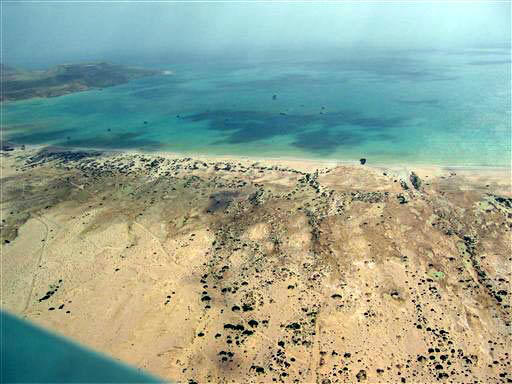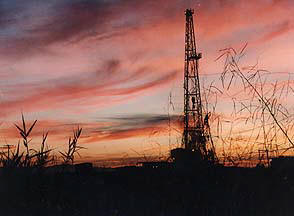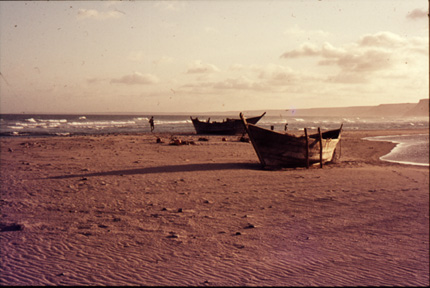| Zooming into the Past |
|
CHRONOLOGY OF SOMALIA’S OIL AND GAS EXPLORATION AGREEMENTS
Part II
1990s
Introduction
Last week, the Forum presented a hypothesis in which we argued that foreign mineral exploration firms could cause distortions in the local politics of Somalia. This week, the Forum zooms in the 1990s exploration activities in northern Somalia (Somaliland).
Is part of northern Somalia's decision to secede from the rest of Somalia built upon the prospects of oil discovery in parts of northern Somalia? In other words, can we assert about the possibility of correlation between foreign companies’ statements of exploration investment to the north and the proclamation to secede parts of northern Somalia (Somaliland)? To answer this question, we present a timeline activity for both explorers and Somali leaders; and possibly, those who manage to read all may find some answers.
Oil companies to resume EXPLORATION work in breakaway republic [IF SECURITY SITUATION REMAINS STABLE].
February 29, 1992
Oil exploration could resume this year in northern Somalia, now the self-proclaimed, breakaway republic of Somaliland. As long as the security situation there remains stable, and despite the continuing civil war in the remaining part of Somalia, the Somaliland government should soon welcome back the foreign oil companies which had their operations halted by the outbreak of civil war in 1988.
Somaliland's President Abdirahman Ahmad Ali says executives at Conoco, which holds four permits in the region, have visited the area several times and expressed satisfaction with the security situation. Ali says Conoco is expected to resume work soon and is hoping to open up new offices in the Somaliland capital, Hargeisa.
New Orleans-based independent, Alliance Resources, has become the first foreign oil company to sign an exploration contract with the breakaway Somaliland government, says Ali. Alliance has acquired a permit located between Hargeisa and Burao, adds Ali, the only open acreage remaining in the region. Ali says the company is expected to start work on its concession sometime early this year.
The security situation in Somaliland is described as "stable". A recent outbreak of fighting in the Gulf of Aden port of Berbera was a "minor incident involving few individuals who resisted government authority in the harbour". In addition to the fighting, the oil companies are also concerned about the million or so mines left in the area by the Siyad Barre forces.
The Somaliland government intends to honour all contracts signed by the defunct administration of Mohammed Siyad Barre until those contracts expire. Alter that, Ali says, the hope is that new mutually acceptable agreements will be negotiated.
However, no country has yet recognised the breakaway republic, causing concern among the oil companies. This has been compounded by statements made by exiled ministers of the Siyad Barre administration that oil companies would be foolish to return to work in Somaliland until there was international diplomatic recognition of the state, or reunification.
Ali says he is not worried about the non-recognition issue, since there is already a de facto recognition of the northern republic. The US has been particularly helpful towards Somaliland in this regard and very forthcoming on aid. It is providing help for the rehabilitation of water and electricity projects. The US move from purely humanitarian aid to rehabilitation aid is indicative of some form of tacit recognition. Industry sources say US oil companies would certainly not have contemplated returning to Somalia without the sanction of Washington.
Britain, the former colonial power, is adopting a "very, very cautious stance", on recognition, says Ali. Official British policy is the EC line - which recognises the unitary state of Somalia. Italy, the other colonial power, adheres to this view and is also "very deeply involved" in the southern civil war, says Ali. The Italians are likely to get their fingers burnt, adds Ali.
Riyadh sets out to dictate oil policy
February, 1993 Petroleum Economist
SAUDI ARABIA has emerged as the key influence in any future Somali oil sector, whenever peace and a new government are restored in the country. Following Saudi attempts to influence both the course of political events in Yemen and the increasing influence of Saudi private investors in that country's oil sector, the latest strategy seems to be to bring countries in the Horn of Africa firmly within the Saudi sphere of influence, writes Maria Kielmas.
Private Saudi investors have been targeting oil projects in the Horn of Africa countries of Somalia, Djibouti and Ethiopia since the mid-1980s, most recently in the face of competition from Iran, but so far without any result. The Somali project indicates a new dual Saudi strategy of influencing the precise formation of the new government hand-in-hand with establishing the foundations of a state-owned and eventually private oil sector.
Meanwhile, proposed changes to Eritrean petroleum legislation and the future policy of an independent Eritrean state - should such a state be the result of the forthcoming referendum and assuming this development meets with Saudi approval - are likely to be influenced by what Riyadh wants.
Saudi agent
A project is under way to establish a Somali state oil company to be known as Somali National Petroleum Corporation (SNPC). It is being coordinated by Omar Arteh Ghalib, who is prime minister in the provisional government of Ali Mahdi, whose forces now only control an area to the north of Mogadishu. Now based in Riyadh, Ghalib runs a consultancy firm known as the North Petroleum Development Corporation, an allusion to his native area since he is a member of the Issak tribe of northern Somalia, now part of the self-declared independent Republic of Somaliland.
Ghalib was sentenced to death in 1988, when the northern insurgency restarted, but was nevertheless appointed prime minister in early 1991 by the then President Siad Barre. His mandate was to seek a ceasefire with the insurgents. He kept his post and the same responsibilities after the Djibouti conference in July 1991, which established the present provisional government following the overthrow of Barre. Ghalib claims to be the only Somali politician to have kept up contacts with all of the warring factions in Somalia and Somaliland. By his own admission, he is being groomed by the Saudis as a future president of Somalia.
However, his critics in the Republic of Somaliland say Ghalib cannot set foot there and is seen as a traitor. He cannot go to the south either, since he controls no tribal fighting force, as is the case with all other contenders for Somali leadership.
Aramco links
Ghalib's North Petroleum is being advised by Bahrain-based Moudjahid Al-Husseini, a Saudi national and oil consultant, who was formerly exploration manager at Saudi Aramco. His brother, Saddad al-Husseini, is the vice-president of exploration and production at Saudi Aramco. The idea is that Moudjahid al-Husseini eventually heads the future SNPC. At present, most of al-Husseini's work is connected with North Petroleum.
Ghalib has been in touch with a number of other individuals in consultancy and financial institutions since September 1992, particularly with London-based International Engineering Consultants, headed by a British national, Paul Browner. This company has been asked by Ghalib to set up SNPC as a legal entity, subject to its ratification by the Somali Council of Ministers. (This supposed cabinet had still not been formed as of mid-January and its membership remained a matter of speculation.)
SNPC's charter is planned to allow for a temporary trusteeship of the new company s assets, although the precise nature of such assets, or who would subscribe capital to the company is still unclear. Which country, company or international agency would act as the trustee is also unknown, although the individuals involved may try to opt for an international agency.
The creation of SNPC tends to be dismissed by officials from the Republic of Somaliland, who insist that there will "never, never" be a united Somalia. The nearest approximation could be a federal state, but even this would be difficult if Saudi Arabia held the strings. "The people of Somaliland prefer Israel to Saudi Arabia," says one official, "especially the younger generation. They hate the Saudis and they hate the Arabs because the Arabs were never there when we needed them."
But Somaliland's attempts to garner international oil industry interest in continuing exploration on its territory have ground to a halt as no country has recognized its independence and the weak government struggles against increasing unrest. But, so far, none of the companies with exploration concessions in the country, such as Conoco, Amoco, Agip, Phillips and International Petroleum have relinquished their blocks. This is not surprising, since the region is the most prospective in the whole of East Africa. Some Somaliland government officials are beginning to entertain the nonsensical notion that their country could have more oil than Saudi Arabia.
The oil companies have always signaled that they were prepared to resume work in Somaliland as long as it was safe to do so and the Hargeisa government honoured existing contracts. Hargeisa has always agreed to maintain existing contracts.
|



